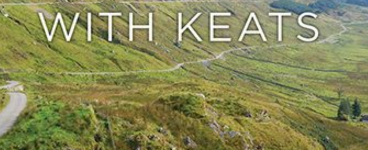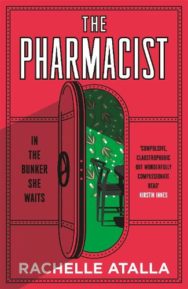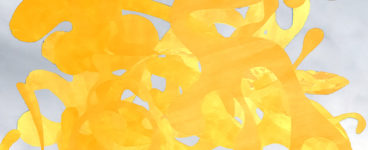‘As far as I’m concerned, character is story – plot can always be adapted and fixed but a novel will fail if the characters aren’t fully realised.’
The bunker is designed to keep them all save, but is it the place of greatest danger? This is at the heart of Rachelle Atalla’s debut, The Pharmacist, which follows a group waiting for the world to heal. Wolfe is one of the lucky ones – safe, working as the bunker’s pharmacist – but as the favours being asked stack up, the protagonist is forced to reckon with whether these walls protect her, or are trapping her. Rachelle speaks to BooksfromScotland about the book.
The Pharmacist
By Rachelle Atalla
Published by Hodder & Stoughton
Congratulations Rachelle on the publication of The Pharmacist. How does it feel as a debut author to have your book out into the world?
Thank you! It’s surreal and exciting. Overwhelming and nerve-wracking. My children have become experts at spotting the cover in bookshops which is lovely, and holding a finished copy was an emotional moment after years of writing. I’m so grateful to everyone involved who helped make this book a reality, and I’m still getting used to the debut landscape, but I’m also ready to accept that the story doesn’t really belong to me anymore – it exists as its own thing now, no longer inside my head.
Can you tell us a little bit of what we can expect from The Pharmacist?
It’s a post-apocalyptic tale following Wolfe, a pharmacist who spends her days doling out medication in a nuclear bunker to other inhabitants while they wait for the outside world to heal. But when the bunker’s increasingly erratic and paranoid leader begins to ask favours of Wolfe, questions of morality and corruption come into play. It’s very much a character driven story – dark and claustrophobic but with touches of humour and threads of hope. There are a lot of parallels to the political landscape in which we currently find ourselves, particularly with regards to the narcissistic leaders we are prone to electing in to positions of power. I think it’s good to write about the things that scare you and the bunker, as a microcosm of society, represents some of my biggest fears.
There’s a grand tradition of speculative novels that explore the misuse of power in re-imagined worlds. How do you think The Pharmacist continues or subverts that tradition?
I would like to think that The Pharmacist continues that tradition but on its own terms. I approached this novel the same way I would a short story – leaving room for the reader to make their own assumptions and interpretations, and by making Wolfe a somewhat flawed and unreliable narrator. After all, we are the flawed narrators of our own lives and I wanted that to be reflected in the bunker. I haven’t always written speculative fiction, but I was drawn to it in the novel form because of its sheer scope – that difficult, encompassing questions about society can be considered without limitation. I have always been interested in peoples’ desires for power, and how we subvert that over one another, and a bunker felt like the perfect environment in which to explore this further.
The characters in The Pharmacist are very vividly drawn. What work do you do to realise your fictional aims through characters?
As far as I’m concerned, character is story – plot can always be adapted and fixed but a novel will fail if the characters aren’t fully realised. Perhaps I’m alone in feeling like this but, to me, my characters might as well be real people. They are fleshed out until they have what I consider to me authentic emotions and opinions and feelings, and I try to execute that as naturally as possible. Particularly with Wolfe, I didn’t want her to feel like a victim who needed rescuing – I wanted her to have her own power, and I believe her role as a pharmacist helped with this. Plus, I used to be a pharmacist so a lot of my own feelings and experiences of the profession were reflected on to Wolfe.
Are there authors or books that influenced your novel that you can tell us about?
From an early age, and long before I wanted to be a writer, I would say I was taken by George Orwell’s ideas in fiction. Of course, Margaret Atwood is a huge inspiration, particularly with her novel Oryx and Crake – I was in awe of the sheer ambition and scope achieved. And with the question of morality, I looked to novels like Strangers on a Train where the writing isn’t so much concerned with catching a criminal but more with the emotional weight that burdens someone with a conscious. There is an Australian novel called Wake in Fright which I just adore – it very cleverly shows how quickly a person can destroy themselves when placed in a particular set of circumstances, and this is something I often thought about when writing The Pharmacist.
What are your reading just now?
Up until recently I was reading submissions for New Writing Scotland 40 and honestly the writing talent in Scotland is outstanding. Now that we’ve made our selection, I am attempting to catch up on my large to-be-read pile – I’m currently in the middle of The Raptures my Jan Carson and it’s fantastic.
What are you excited about in your life as an author now that your book is published?
I’m most excited about engaging with readers and continuing to be part of a great writing community. I’m attending several book festivals this year as an author and that’s something I have always dreamed about. I’m also just excited to be writing new things and improving as a writer.
The Pharmacist by Rachelle Atalla is published by Hodder & Stoughton, priced £16.99.
ALSO IN THIS ISSUE

 Walking North With Keats
Walking North With Keats
‘The themes that run through Keats’s letters and poems, as well as Brown’s journal, emerged as more …














